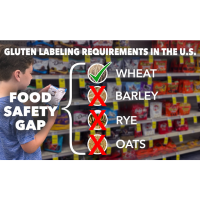
Leqembi and the Accelerated Approval Pathway
In January 2023, the U.S. Food and Drug Administration (FDA) approved Leqembi for the treatment of Alzheimer’s disease using the accelerated approval pathway.[1] This accelerated approval comes on the heels of a 2022 U.S. Department of Health and Human Services Office of Inspector General (OIG) evaluation of the Accelerated Approval pathway. The evaluation was a direct response to a different instance whereby FDA’s use of the pathway “raised concerns due to alleged scientific disputes within the FDA, the advisory committee’s vote against approval, allegations of an inappropriately close relationship between the FDA and the industry, and the FDA’s use of the accelerated approval pathway” of another Alzheimer’s drug.[2]
OIG’s assessment of the pathway noted that “for a variety of reasons, sponsors do not always complete trials promptly. In fact, more than one-third of accelerated approval drug applications with incomplete confirmatory trials are past their original planned completion dates, including four that are more than 5 years past those dates.” While Leqembi met post-marketing requirements and made history in July 2023 as “the first amyloid beta-directed antibody to be converted from an accelerated approval to a traditional approval for the treatment of Alzheimer’s disease,” the construct of the accelerated approval pathways continues to be scrutinized.[3] Recently, FDA has suffered criticism regarding the regulatory standards used, delays in withdrawing approvals of drugs without confirmed clinical benefit, and lack of diligence by sponsors conducting confirmatory trials.
FDA instituted accelerated approval regulations in 1992, allowing drugs for serious conditions to be approved based on a surrogate endpoint.[4] Congress followed up the effort in 2012 with passage of the Food and Drug Administration Safety Innovations Act, permitting FDA to base accelerated approval for drugs for serious conditions that fill an unmet medical need on whether the drug has an effect on a surrogate or an intermediate clinical endpoint. A surrogate is a marker, such as a laboratory measurement or other measure, that is thought to predict clinical benefit. This approach enables FDA to approve the drug faster, ostensibly without sacrificing the acquisition of diligent scientific data supporting the drug’s effectiveness. However, accelerated approval from FDA comes with important reporting strings attached. Federal law grants FDA the authority to require sponsors to conduct confirmatory trials after approval to verify that the drugs provide the predicted clinical benefit.[5]
By way of example, the surrogate used in the Leqembi trials supporting its accelerated approval was the statistically significant reduction in brain amyloid plaque in an initial study consisting of 856 patients with Alzheimer’s disease.[6] Amyloid beta plaque is a marker of Alzheimer’s disease. The patients in the study were treated with 10 milligram/kilogram of Leqembi every two weeks and their brains were scanned for plaque using positron emission tomography (PET) to estimate the brain levels of plaque in brain regions expected to be affected by the illness. After 79 weeks, patients receiving the treatment had “a statistically significant reduction in brain amyloid plaque from baseline to Week 79 compared to the placebo arm, which had no reduction of amyloid beta plaque.”[7]
In January 2023, FDA granted accelerated approval. As a post-marketing requirement and condition of its grant of accelerated approval, FDA required a confirmatory study to verify Leqembi’s anticipated clinical benefits. The efficacy of Leqembi was evaluated via a Phase 3 randomized, double-blind, placebo-controlled clinical trial of 1,795 patients with Alzheimer’s disease and mild cognitive impairment or mild dementia confirmed by the presence of amyloid beta pathology. Leqembi met the post-marketing requirements and, in July 2023, FDA converted the accelerated approval to a traditional approval. Notably, at the time of the accelerated approval, the Phase 3 study was complete and the publicly reported topline results, while not yet submitted to FDA, appeared to support the clinical benefit.
The short period between accelerated approval and conversion to traditional approval for Leqembi exemplifies FDA efforts to combat criticism of the program. On at least one occasion in the last year, FDA specifically called for a fully enrolled confirmatory trial prior to a specific accelerated approval submission. This recommendation was echoed by the agency in Project Confirm.[8]
Legislative and regulatory efforts have similarly sought to address delays in post-marketing studies and the withdrawal of non-compliant or ineffective accelerated approval drugs. This includes recent reforms like the FDORA (Food and Drug Omnibus Reform Act) legislation, which grants FDA more leverage to ensure that drug companies promising to conduct further research to ensure their drug’s efficacy follow through.[9] Under the bill, FDA has explicit authority to require drugmakers to have started confirmatory studies as a condition of accelerated approval.[10] While accelerated approvals have been granted to over 100 drugs in the past, this approval avenue can be controversial because of post-approval delays by drug company applicants. An NPR investigation found that “42% of outstanding confirmatory drug studies required after accelerated approval either took more than a year to begin or hadn’t started at all.”[11] Thus, recent legislation was meant to tighten up the approval process in order to assuage concerns by increasing accountability.
Most recently, in July 2023, FDA released Draft Guidance: “Postmarketing Studies and Clinical Trials: Determining Good Cause for Noncompliance with Section 505(o)(3)(E)(ii) of the Federal Food, Drug, and Cosmetic Act.”[12] Examples of noncompliance by an applicant include a missed final protocol submission deadline, a missed final report submission milestone, and a missed study or clinical trial completion milestone.
The Draft Guidance describes the factors FDA intends to consider when determining whether an applicant has demonstrated good cause for failure to comply with the completion timetable of required studies or clinical trials. The factors include the applicant’s explanation of the circumstances that led to the noncompliance. If the applicant failed to explain why it did not comply, especially upon FDA’s request, then FDA will consider it to have failed to demonstrate good cause. FDA expects the applicant’s explanation of noncompliance to be reasonable under the circumstances and meet several criteria, including that the circumstance is directly related to the missed milestone, be out of the applicant’s control, and one that could not have been reasonably anticipated and factored in at the time the original timetable was finalized.
FDA may also consider any other available information they deem pertinent.[13] For a missed final submission, FDA may find it reasonable if the cause was within FDA’s control, such as due to a prerequisite investigation. Other reasonable circumstances could include foreign agency restrictions and unanticipated drug access issues. Alternatively, it would be unreasonable if the delay was due to nonavailability of the drug or the submission of a protocol that FDA considers unlikely to provide meaningful data. The Draft Guidance also lays out consequences of noncompliance, including warning letters, misbranding charges, and civil monetary penalties, the latter of which is determined based on whether the sponsor is taking steps to correct its non-compliance.
Recent efforts like FDORA and FDA Draft Guidance on Postmarketing Studies and Clinical Trials are steps towards more accountability and public trust in the drug approval process. The approval of Leqembi through the accelerated approval pathway exemplifies FDA’s efforts to improve the program by striking a balance between expediting approvals and ensuring patient safety and drug efficacy. While some criticisms and challenges remain with accelerated approvals, both FDA and industry support an ongoing modernization of the program, and progress is likely to continue.
[1] FDA Grants Accelerated Approval for Alzheimer’s Disease Treatment, https://www.fda.gov/news-events/press-announcements/fda-grants-accelerated-approval-alzheimers-disease-treatment (2023).
[2] Review of the FDA’s Accelerated Approval Pathway, https://oig.hhs.gov/reports-and-publications/workplan/summary/wp-summary-0000608.asp (2023).
[3] FDA Grants Accelerated Approval for Alzheimer’s Disease Treatment, https://www.fda.gov/news-events/press-announcements/fda-grants-accelerated-approval-alzheimers-disease-treatment (2023).
[4] Accelerated Approval, https://www.fda.gov/patients/fast-track-breakthrough-therapy-accelerated-approval-priority-review/accelerated-approval (2023).
[5] Federal Food, Drug, and Cosmetic Act, 21 U.S.C. § 506(c)(2).
[6] FDA Grants Accelerated Approval for Alzheimer’s Disease Treatment, https://www.fda.gov/news-events/press-announcements/fda-grants-accelerated-approval-alzheimers-disease-treatment (2023).
[7] FDA Converts Novel Alzheimer’s Disease Treatment to Traditional Approval, https://www.fda.gov/news-events/press-announcements/fda-converts-novel-alzheimers-disease-treatment-traditional-approval, (2023).
[8] Project Confirm, https://www.fda.gov/about-fda/oncology-center-excellence/project-confirm (2023). “FDA strongly recommends that the confirmatory trial(s) be well underway if not fully enrolled at the time of accelerated approval.”
[9] Food and Drug Omnibus Reform Act of 2022, H.R. 2617, 117th Cong. 2022.
[10] Id.
[11] Drugmakers are slow to prove medicines that got a fast track to market really work, https://www.npr.org/sections/health-shots/2022/07/22/1110830985/drugmakers-are-slow-to-prove-medicines-that-got-a-fast-track-to-market-really-wo (2022).
[12] Draft Guidance, Postmarketing Studies and Clinical Trials: Determining Good Cause for Noncompliance with Section 505(o)(3)(E)(ii) of the Federal Food, Drug, and Cosmetic Act Guidance for Industry (July 2023).
[13] Id.
Update Magazine
Spring 2024

 BEATRIZ RAMON is a third-year law student at Harvard Law School (JD Candidate 2024) where she works on agricultural justice issues as a Teaching Fellow for the Ghana Project Clinic, immigrants’ issues in the Harvard Immigration and Refugee Clinic, and is a Teaching Fellow for the First Amendment class. Ms. Ramon prepared this article while a summer associate of Jones Day in the Washington, DC office, under the supervision of Colleen M. Heisey, a partner in the Health Care and Life Sciences practice.
BEATRIZ RAMON is a third-year law student at Harvard Law School (JD Candidate 2024) where she works on agricultural justice issues as a Teaching Fellow for the Ghana Project Clinic, immigrants’ issues in the Harvard Immigration and Refugee Clinic, and is a Teaching Fellow for the First Amendment class. Ms. Ramon prepared this article while a summer associate of Jones Day in the Washington, DC office, under the supervision of Colleen M. Heisey, a partner in the Health Care and Life Sciences practice.





